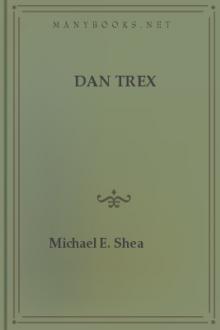How to Be a Mentsh (and Not a Shmuck), Wex, Michael [top inspirational books .txt] 📗

Book online «How to Be a Mentsh (and Not a Shmuck), Wex, Michael [top inspirational books .txt] 📗». Author Wex, Michael
II
RICK WILCOX, ONE of the leading figures in contemporary American mountaineering, discovered an unusually clear case of the kind of human underdevelopment that we’re talking about. There’s no better example of a clueless golem or a shmuck in motion than the high-altitude specimen that Wilcox ran across in the Himalayas a number of years ago. Discovering a fellow climber in life-threatening distress, Wilcox and his wife arranged for a helicopter to get the climber out of danger and off the mountain. They were more than a little taken aback when the person whose life they’d saved “stiffed us,” as Wilcox put it, “for the helicopter bill.”
If shmucks had legs, this guy would be Bigfoot. The willingness to accept help, as if having his life saved were his due; the self-importance that leads him to think that a total stranger should be happy to foot the bill; the dishonesty, ingratitude, chutzpah, and lack of manners, not to mention the complete absence of any scruple about repaying good—genuine, altruistic, nothing-in-it-for-the-benefactor good—not with evil, so much as with contempt, brings us about as close to shmuckish perfection as we’re likely to get. This is a guy who can’t converse; his only problem with other people is that they exist when he has no use for them. It’s one thing to cheat the reaper, it’s something else to cheat the guy who cheated him for you. All that’s missing is a lawsuit against Wilcox, ideally for having come between the plaintiff and his original plans.
While this alpine asshole might have reached the summit of recent shmuckishness and set a benchmark for the entire twenty-first century, he can’t be said to have done so alone. Today’s shmucks have a lengthy pedigree behind them, extending in mythological terms all the way back to the beginning of time. We can witness the birth of the shmuck near the opening of the book of Genesis, the chronology of which seems to imply that even before there were people, there were shmucks.
Full as it is of sinners, evildoers, and deeply flawed heroes, the Hebrew Bible is a virtual encyclopedia of shmuckish activity from its earliest pages on. Adam and Eve start to behave like shmucks only a few short lines after they have both been created. While the Christian notion of original sin doesn’t jibe very well with standard Jewish ways of thought, the idea that, left to his own devices, an untutored human being stands a better than even chance of turning into a shmuck most assuredly does: all he has to do is talk to another person. The story of the Tree of Knowledge and the expulsion from Eden can be read as the overture to a still unfinished symphony of shmuckishness.
If there’s a mythological element to any of this, something that might strike a thoroughgoing rationalist as hard to believe, it is only that it is possible to be a shmuck without even being human. Adam and Eve have been created at the end of the second chapter of Genesis; the first line of chapter 3 states that “the snake was the most cunning of all the beasts of the field that the Lord had made.” The Hebrew word translated as “cunning,” arum, looks the same as the Hebrew word for “naked.” In the verse immediately before this one, Adam and Eve are described as arumim (that’s the plural adjective), “naked, unconcealed, open,” and Eve takes the serpent’s leading question—“Did God actually tell you not to eat from any tree in the garden?” (Gen. 3:1)—as an open, honest inquiry with no ulterior motive behind it.
Now, the serpent himself is quite a shmuck, the kind who can’t stand to see others enjoying themselves. Rashi, whom we met in the last chapter, says, “The snake saw them naked, having sex where all could see, and he lusted for Eve.” Rashi’s commentary is printed alongside Scripture itself in all traditional editions of the Hebrew Bible, and this particular passage was once known to virtually every Jewish schoolchild. I’m not going to linger on the phallic associations of the snake and their peculiar appropriateness to a discussion of shmek—the English “shlong” for penis comes from the Yiddish shlang, which has a clean meaning of “snake” and a dirty one of shmuck, in the anatomical sense—except to note that when schoolkids used to translate Rashi’s comments from Hebrew to Yiddish, the idea of a shlang seeing two people having sex and wanting a bit for itself produced plenty of schoolboy quips and giggles, pre-Freud as well as post-, especially in view of the fact that Rashi prefaces the above remarks by discussing “why the snake came to Eve,” rather than Adam. This would have been translated as far vos the shlang came to the woman, which could be taken as a lesson in biology just as easily as in “what brought death into the world and all our woe.” Human history begins on a bad night in an interspecies singles bar.
The snake’s conversation with Eve is not only a fairly intense version of aggressive bar talk, it is also presented as the first conversation ever to take place between any of God’s creatures. The snake’s opening gambit is a classic example of what biblical and rabbinic tradition call “wronging” or “cheating”





Comments (0)